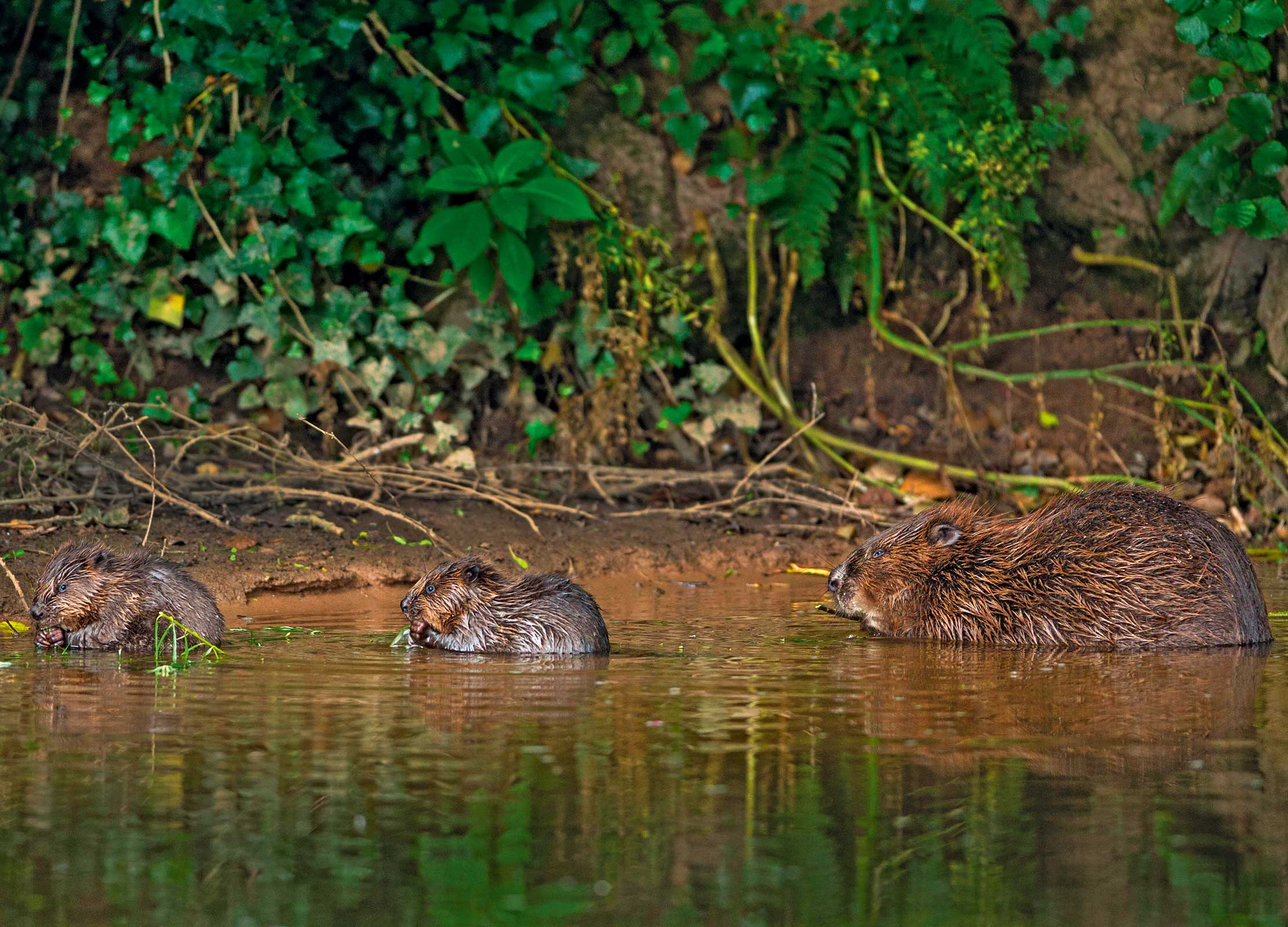The return of beavers to Britain: Will it work, and who will be the winners and losers?
Beavers are set to be reintroduced to England, four centuries after being killed off in the country — but will their presence be purely beneficial, or are there negative consequences to be wary of? Carla Passino looks at the arguments on both sides.


The jury is out on the Government’s plans for the reintroduction of beavers in England, announced last week. A native species, they were hunted to extinction about 400 years ago, but the results from recent trials, most notably along the River Otter in Devon, have inspired a consultation on countrywide releases. ‘The cascade of consequences that comes from them being in the landscape is pretty positive,’ explains Natural England’s chairman, Tony Juniper. As well as improving water quality and reducing flood peaks, ‘beavers engineer our riverscapes in ways which have very positive knock-on effects for birds, insects and amphibians,’ with some fish also benefitting.
The changes wrought by beavers are also quick, according to Mr Juniper, with one ‘bleak stretch of upland stream’ on Dartmoor transformed ‘into a vibrant wildlife habitat full of birds and amphibians in a couple of years’. Plus, adds Rob Stoneman of Wildlife Trusts, dams help river valleys to store carbon in wetland soils. ‘Reintroducing beavers means our wetlands will be healthier, wildlife will benefit and local economies will be boosted through eco-tourism,’ he enthuses.
However, the extent and speed of beavers’ impact that appeals to some is the reason others — such as farmers, landowners and fish conservationists — are wary. The NFU points out that beavers can affect farmland drainage, cause fields to flood and damage trees and riverbanks, whereas Nick Measham of Salmon & Trout Conservation expresses concern for endangered salmon and trout.
‘The precautionary principle that says “If in doubt, don’t” has been ignored,’ he laments. ‘In many ways, beavers may benefit river ecology, including fish, but not in all circumstances... we need to be careful. Beavers are in no risk of extinction. Salmon and sea trout are.’
Mr Juniper responds that the Government strategy hinges on minimising downsides through careful management. To be licensed, a beaver release would have to demonstrate benefits and ‘widespread stakeholder support’. Tools would be in place to manage problems, from protecting ‘trees or moving dams, through to the relocation of beavers… [then] potential lethal control, as a very last resort’.
Robust evidence and management suggestions come from John Varley, estate director for Clinton Devon estates, part of the River Otter trial: ‘We have seen how beavers in the right place can bring about major benefits for wildlife, the environment and society… However, we have also witnessed negative impacts when beavers are in the wrong place: farmers’ fields, private property and roads flooded, as well as trees damaged.’
For Mr Varley, two factors must underpin any wide-scale releases. ‘The first is having a pragmatic and responsive management policy, which has the confidence of land managers and the public. The second is having the resources to implement it.’
Exquisite houses, the beauty of Nature, and how to get the most from your life, straight to your inbox.
Opinion: "Reintroducing lost animals is a laudable aim, but human considerations are never as straightforward as those of hungry wild animals"
The following leader article appears in Country Life magazine on September 1, 2021
No-one can have failed to spot that there is growing interest in the cause of rewilding, a key component of which is the reintroduction of creatures that once inhabited our islands. Mankind has usually been the perpetrator of their disappearance and, on the face of it, reclaiming them is a laudable objective. However, problems arise when species are re-established into the complex mosaic of the farmed, afforested and populated environments that developed in their absence. They are often shy and may not be the great tourist attraction as promised. In most cases, these animals have no apex predator, other than humans, to control their numbers or their own predators, but human considerations are never as straightforward as those of hungry wild animals.
Defra’s proposal for a general release of beavers in England is a case in point. It will be met with jubilation by rewilders, but perhaps with less enthusiasm by lowland farmers and some fishermen. Beavers are seen as a keystone species bringing wide environmental benefits — their dams filter water, alleviate flooding and benefit riverine wildlife — but experience in Scotland’s Tayside region, where they have been subject to unofficial and uncontrolled release, shows that, where they colonise low-lying farmland with carefully graded drainage systems, they can cause considerable damage to crops by damming ditches.
"Where species are brought back, proper account must be taken of those whose working lives their reinstatement will compromise"
Research into the co-existence of beavers and salmonids in northern Europe is also scarce. The pro-beaver lobby argues that, before their extirpation 400 years ago, they co-existed happily with fish. However, it is probable that the populations of salmon-running UK rivers were then considerably greater compared with today’s parlous state. Dealing with beaver problems costs time and money. Since May 2019, they have been a protected species in Scotland, where the government is being taken to a judicial review by environmental charity Trees for Life for issuing licences to cull them where they affect farmers.
If England is to allow an across-the-board reintroduction, it needs a proper licensed relocations and compensation system in place, with the option to cull where the animals are a nuisance. Urgent research is needed into how dams in spawning streams may affect the progress of fish. The continuing controversy among West Highland sheep farmers after the reintroduction of sea eagles and the nervousness around proposals to release lynx in the Borders show, too, that, where species are brought back, proper account must be taken of those whose working lives their reinstatement will compromise.
Beaver reintroduction: See the government consultation at gov.uk
Carla must be the only Italian that finds the English weather more congenial than her native country’s sunshine. An antique herself, she became Country Life’s Arts & Antiques editor in 2023 having previously covered, as a freelance journalist, heritage, conservation, history and property stories, for which she won a couple of awards. Her musical taste has never evolved past Puccini and she spends most of her time immersed in any century before the 20th.
